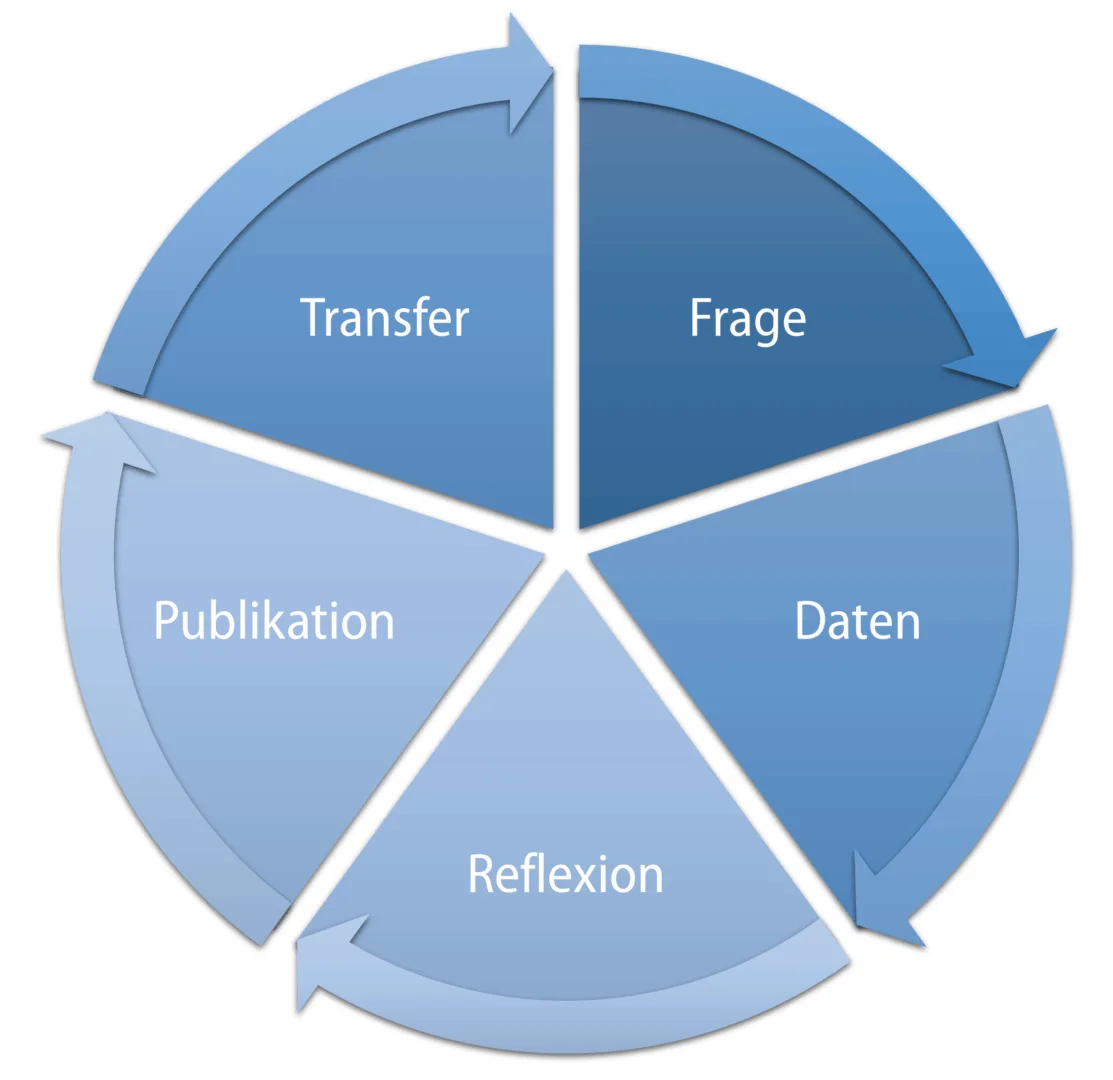Researching your own teaching with SoTL
Scholarship of Teaching and Learning (SoTL) is an approach to researching one's own teaching. With SoTL, you can make a significant contribution to advancing teaching practice through your scientific findings.

In a nutshell: What is Scholarship of Teaching and Learning?
Researching one’s own teaching and sharing scientific findings with others has become an internationally established practice within the Scholarship of Teaching and Learning (SoTL). Teachers who have engaged in research and conceptualization of their teaching are Scholars of Teaching and Learning or SoTL researchers.
How do I benefit from SoTL?
As a SoTL researcher, you can publish a scientifically based report of your teaching experiences and share it with other teachers of similar disciplines. You will engage in educational research in your discipline and thus will be able to strengthen your subject and further professionalize subject-related teaching.
What does SoTL consist of?
SoTL was initiated by Boyer (1990) with the intention of “promoting the professionalization of university faculty”. SoTL thus intends to improve the quality of teaching and learning – based on scientific findings.
Scholarship of Teaching and Learning is the academic engagement of university faculty with their own teaching and/or student learning in their institutional settings and disciplines through research and systematic reflection, with the intention of sharing the findings and results with interested members of the public and thus making them available for exchange of experiences and discussion.
Huber, 2018, p. 21
The main elements of SoTL can be derived from this definition:
- developing a research question on teaching
- collection of data
- reflecting on these results and collecting further data
- publication of the research results
- transfer to the teaching community

Step by step: How can a SoTL project be implemented?
Implementing a SoTL project is not necessarily different from the research in your discipline. You will undergo a research process in several steps to generate empirical findings about your own teaching.
The starting point of a SoTL research is usually observations in your own classroom. For example, you can identify problems, challenges, or potentials in your course that prompt a closer look. Based on your observations, you can develop a suitable question for your SoTL project.
As in any research project, you must find a suitable way to collect data for your chosen research question. In your SoTL project, you are free to choose between qualitative, quantitative, or mixed-methods approaches. If you ever have difficulty deciding on a method, the ZLE (Center for Academic Development) will advise and support you in implementing your SoTL project. Existing data can also be evaluated, e.g., from previous research projects or student documents such as term papers or portfolios.
For your colleagues and the teaching community to learn about your SoTL project, it is important to document and publish your findings. To do so, you will analyze and examine the results obtained using an appropriate evaluation method and derive conclusions for your own teaching. You can publish your SoTL project, for instance, in various publication outputs of university teaching and university didactics.
How do others learn about my SoTL project?
To share your project with the teaching community, you have several options. Often, university centers for academic development offer events where you can network, such as the Night of the Scholars at TH Cologne. Here, you can present and discuss your research findings. University didactics conferences also provide an opportunity to exchange ideas. You can participate in these conferences as a teacher and use Calls for Participation to submit your own contributions.
These include, for example:
Still not enough of SoTL?
Then listen to Dr. Birgit Szczyrba’s podcast with e-teaching.org (German)!
Any questions?
Feel free to contact us by mail to lehrpfade@th-koeln.de!
Links & Literature
- Barnat, M. & Szczyrba, B. (2021). Scholarship of Teaching and Learning – von unentdeckten Einzelinitiativen zur institutionellen Förderung an Hochschulen In: Neues Handbuch Hochschullehre / Berendt, Brigitte; Fleischmann, Andreas; Schaper, Niclas; Szczyrba, Birgit; Wiemer, Matthias; Wildt, Johannes (ed.). Vol. 100 (2021), pp. 1 – 18, Article J 3.18
- Huber, L. (2011). Forschen über (eigenes) Lehren und studentisches Lernen – Scholarship of Teaching and Learning (SoTL): Ein Thema auch hierzulande? Das Hochschulwesen, 59(4), 118–124.
- Huber, L. (2014, 2. edition). Scholarship of Teaching and Learning. Konzept, Geschichte, Formen, Entwicklungsaufgaben. In L. Huber, A. Pilniok, R. Sethe, B. Szczyrba, & M. P. Vogel (ed.), Forschendes Lehren im eigenen Fach. Scholarship of Teaching and Learning in Beispielen (pp. 19–36). Bertelsmann.
Header-Image: © Rawpixel/stock.adobe.com
-

Lisa-Marie Friede, M. Sc. Sociology and Empirical Social Research, research assistant in the University Didactics team at the Center for Academic Development at TH Köln. Main areas of work: Research and development in the areas of intra-institutional university research, SoTL, hybrid teaching and learning spaces, qualification and academic career paths.
-





